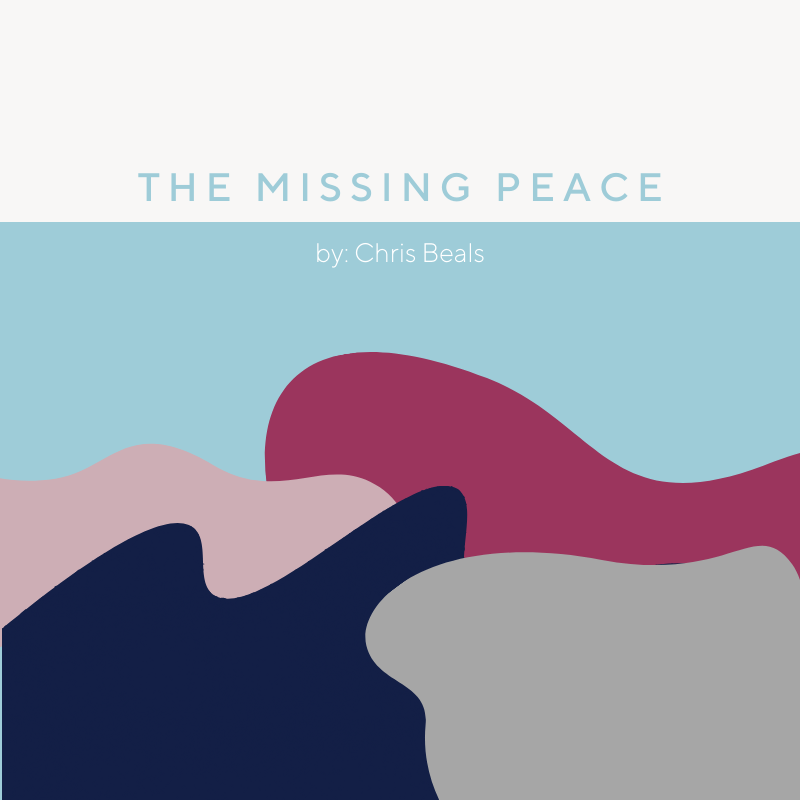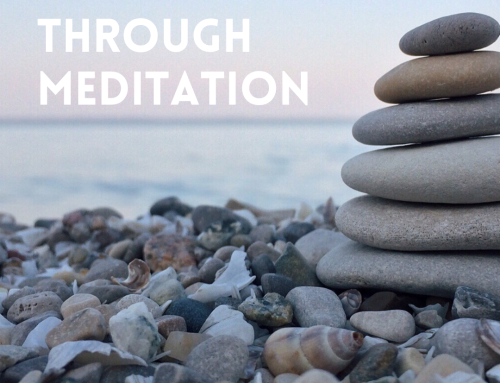The Missing Peace
by:
If you were to conduct a friendly survey with your family members, friends, neighbors, and coworkers asking them to make a list of the top five things they want most right now, I almost guarantee one item that would be near the top of everyone’s list: peace.
And for good reason. Consider the events we have experienced in 2020 so far: A global pandemic, stay-at-home orders, mask mandates, economic crash, racial unrest, peaceful protests, violent riots, political animosity, educational challenges for our children, just to name a few. As a result, many of our hearts have been battling fear, stress, anxiety, distrust, panic, decision fatigue, loneliness, relational tension, and many more.
The missing piece in many of our lives is peace.
If peace is what so many of us want, then what is peace?
Biblical peace is not rooted in our circumstances but in God.
Some are not experiencing peace because they believe it can only be experienced when hardship, pain, and difficulty are absent from their lives. Some say, “If my circumstances were different than I would be filled with peace,” as if pain and peace cannot coexist. But when the Bible talks about peace it is almost always in the context of hardship.
For example, Jesus declared, “I have said these things to you, that in me you may have peace. In the world you will have tribulation. But take heart; I have overcome the world.” (John 16:33) Jesus declares your circumstances are going to be very difficult. But that does not negate peace.
In many ways, hardship can open the door to experiencing deep peace because it helps us understand that peace is ultimately rooted in God. That’s why Jesus declared, “in Me you may have peace”. Peace is not the absence of pain but the awareness of God’s presence. Peace is harmony with God, not happiness in our circumstances. Circumstantial peace is fleeting. Divine peace is lasting.
Biblical peace is not a byproduct of emotion but trust.
When someone has made a difficult decision and asked about how they knew they made the right choice, sometimes I hear people say, “I just feel a peace about it.” Although peace impacts how we feel, the Bible does not reduce peace to only a feeling as if peace follows wherever our emotions lead us. Feelings are real but they cannot be authoritative in how we live. Peace is not a byproduct of our emotions but a byproduct of our trust in God.
There is a close connection between peace and trust. Isaiah 26:3 says, “You keep him in perfect peace whose mind is stayed on you, because he trusts in You.” Peace is on the other side of trusting God who is an everlasting rock. Peace results in the condition of a heart that is trusting, depending, and relying on God not circumstances, emotions, or temporary happiness. So often we are tempted to just want peace from God and not do the hard work of trusting in Him in the midst of difficulty.
On the night before He was crucified, Jesus was in agony in the Garden of Gethsemane (Matthew 26:36-46), yet demonstrated trust in the Father’s will. When we do the same, we experience God’s peace that fills us with reassurance, clarity, and confidence in Him despite what our emotions are telling us.
Biblical peace is not a static state but activates obedience.
When the Bible talks about peace it’s never in terms of it being a destination or an end in itself but as a means to further obedience. One way you know you are experience peace from God is when it impacts how you interact with others and how you make decisions. In other words, it’s not static but it activates obedience. Here are a few examples:
- Peace is a fruit of the Spirit (Galatians 5:22).
- Peace guards our hearts and minds (Philippians 4:7).
- Peace rules or governs our hearts (Colossians 3:15).
- Peace keeps us from sin (Psalm 119:165).
- Peace making results in righteous living (James 3:18).
The peace of God is to be the controlling force in our lives. It is to be the “referee” that governs how we interact with others. It shapes us into being peacemakers and peacekeepers that encourages unity instead of being pot-stirrers that cause division.
Even though 2020 has been a challenging year, how does the peace of God shape the way you live and interact with others? Is it a fruit that people notice? Is it guarding and governing your heart and mind?
Biblical peace is very different than worldly peace because it’s from God. When we experience vertical peace with God it leads to experiencing horizontal peace with others (Ephesians 2:11-14). Before God saved us in Christ, we were at war with God (Romans 5:10) because of our sin. But because of Jesus’ accomplished work on the cross and through His resurrection, we who are justified by faith in Christ can have peace with God (Romans 5:1).
God wants to generously give you His peace! Jesus said in John 14:27, “Peace I leave with you. My peace I give to you.” But God does not deliver His peace by removing hardship and pain from our lives, nor by filling our hearts with warm, fuzzy feelings. He delivers His peace by giving us Himself. Peace is not grounded in temporary happiness, shifting circumstances, or fleeting emotion but an unchanging God.
The One who knows us and our needs better than we know ourselves, the One who comforts us in ways nothing else can, the One who lavishes His perfect love on us is the God who offers peace to you right now so that even if 2020 gets worse, we have nothing to fear. We can experience harmony with God as we go throughout life no matter what we experience because the God of peace is with us, for us, and in us. Don’t make peace the missing p





